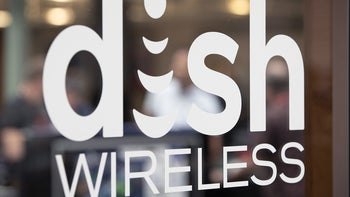Meet DISH, the new Sprint, can it compete with T-Mobile on 5G plans?

After the T-Mobile merger with Sprint, the task to become the mythical fourth carrier has been relegated to... the DISH network. You know, when-the-dog-sneezed-we-lost-the-picture DISH.
Given the pace of cord-cutting in the nation, its two biggest satellite TV providers - Dish Network and AT&T's DirecTV - are losing customers at breakneck speeds, and may be forced into a merger of sorts pretty soon. Dish's co-founder Charlie Ergen, have been eyeing a switch to a different business model for many years now, hinting at a move away from a satellite TV, and into being a mobile network provider.
Dish emerged as the merger deal's savior last summer not from the goodness of its own heart, but because it presented its management with just the opportunity they have been waiting for year when the New T-Mobile was announced. In the divorce proceedings, Dish got Sprint's prepaid mobile brands and its 800MHz wireless spectrum that can be supplemented with its own spectrum holdings to create a new 5G network that will go against Verizon, AT&T, and the New T-Mobile.
Dish has an abundance of spectrum licences, a big entertainment network, gets 14MHz of Sprint’s nationwide 800MHz band, and can piggyback on the T-Mobile network for up to seven years, so the ball is now in its court.
Mr Ergen, himself an avid poker player, is on record saying that its darling will be ready and willing with a wireless offering within 30 days of the T-Mobile deal closing. Well, the New T-Mobile went live on April 1, so there is still some time left on the clock. What can we expect from Dish as the fourth major US carrier?
Boost and Virgin Mobile users become Dish subscribers
Sprint's prepaid, as well as the Boost and Virgin Mobile brands had to be offloaded, according to the merger agreements, so as to fit into the merger's antitrust requirements. Virgin's customers were already folded into Boost last month, so that both can be transferred to Dish, effectively creating a distant fourth carrier again with about 10 million wireless subs already, if you don't count its own 12 million TV customers.
After acquiring Sprint’s prepaid businesses and customers, Dish is now given access to the network of the resulting new T-Mobile carrier for no less than seven years, in addition to the the opportunity of building its own independent 5G broadband network.
After acquiring Sprint’s prepaid businesses and customers, Dish is now given access to the network of the resulting new T-Mobile carrier for no less than seven years, in addition to the the opportunity of building its own independent 5G broadband network.
The new Dish 5G network
Dish has an abundance of spectrum licences, a big entertainment network, gets 14MHz of Sprint’s nationwide 800MHz band, and can piggyback on the T-Mobile network for up to seven years, so the ball is now in its court.
Unfortunately, due to the coronavirus lockdown, and perhaps some overly optimistic calculations by the management, Dish won't be able to meet its 5G rollout obligations anytime soon. The condition to build a 5G network that will reach 70% of the US population two years from now, seems to be in limbo, but failure to execute may result in $2 billion in fines.
Dish certainly has the spectrum, as it has been buying an sitting on bands for years now, and it also got some of Sprint's frequencies in the merger lawsuit. T-Mobile's CEO John Legere, who had been accusing Dish of hoarding its purchases, has now taken advantage of the extra spectrum to boost its own network in times of increased usage like these.
Next on "Hoarders": @dish. They've warehoused $11B of spectrum for years and missed every build deadline. NOW they finally started to deploy with one tower so the spectrum doesn't get taken away #UseItOrLoseIt! https://t.co/2N4dNKAdSnpic.twitter.com/IcNQBciKwF
— John Legere (@JohnLegere) February 6, 2019
While Dish holds 486 licenses in the 600 MHz band, and is helping T-Mobile's network with it, it can’t sell its AWS-4 and 600 MHz spectrum for six years unless it gets federal approval. That leaves it sitting on a massive amount of licenses for all kinds of spectrum that is perfectly good for building out the vast 5G network it promised, as mapped by Allnet Insights & Analytics below.
Can Dish offer lower plan prices to compete with T-Mobile, Verizon or AT&T?
Who's going to pay for a brand new independent 5G network in these trying times, though? Well, Charlie Ergen will have to raise at least $10 billion so Dish can provide the promised 5G coverage of 70% percent of the people in the U.S. by June 2023. Can he do it? He's proven to be a deal maker, but the actual date could be pushed back under various pretenses.
In the mean time, if you are a former Boost, Virgin, or Sprint prepaid subscriber, you can rest assured that you will be able to keep your service by piggybacking on the T-Mobile network, in addition to what Dish manages to build out.
Unfortunately, Dish's own predictions so far are 20% coverage by mid-2021, and we only have two weeks on the clock for the promised cell phone plan disruption of the new Boost, oops, Sprint, oops, Dish.










Things that are NOT allowed: